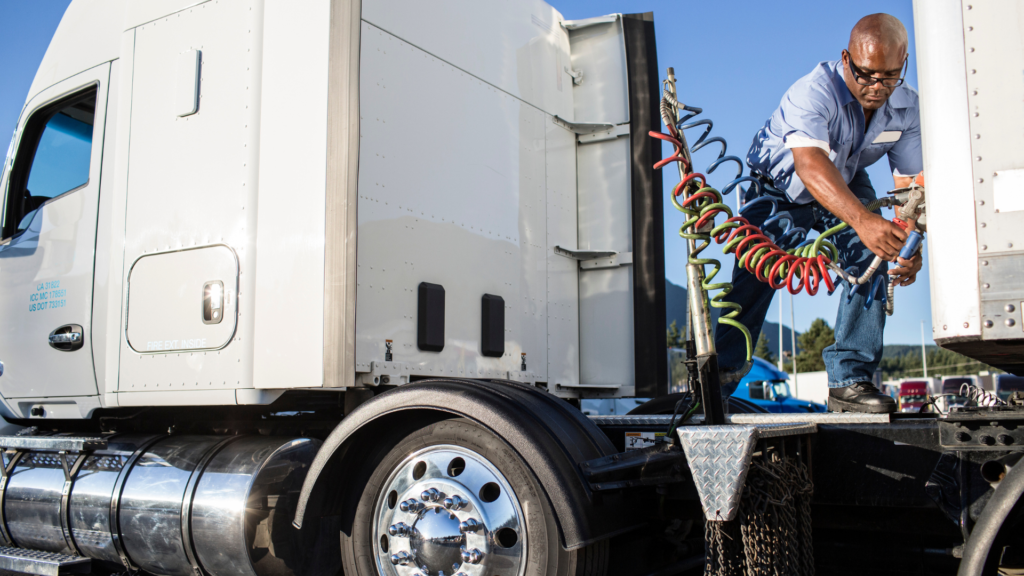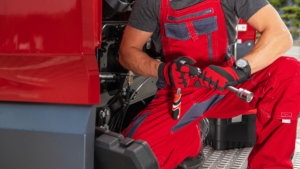Maintaining the health and functionality of trailers is paramount for trailer owners, fleet managers, and truck drivers. Preventative maintenance plays a crucial role in ensuring that trailers remain in top condition, reducing the likelihood of unexpected breakdowns and costly repairs. Implementing a robust trailer maintenance checklist can help identify potential issues early and keep your fleet running smoothly. This guide will provide essential trailer repair tips and detailed insights into effective fleet maintenance strategies, aiming to enhance the longevity and performance of your trailers.
Importance of Preventative Maintenance
Preventative maintenance is critical for ensuring the longevity and reliability of your trailers. Regular inspections and upkeep can help identify minor issues before they escalate into major problems, saving time and money in the long run. By adhering to a trailer maintenance checklist, you can mitigate the risk of unexpected breakdowns, which can cause delays and affect your bottom line.
Additionally, consistent maintenance enhances safety for drivers and other road users by ensuring that all trailer components, such as brakes, tires, and lights, are in optimal condition. In turn, this can also lead to improved fuel efficiency and reduced operational costs. Overall, investing time in preventative maintenance is a proactive approach that pays dividends in terms of reliability, safety, and cost-effectiveness.
Your salvation on the road. Explore our fast 24/7 repair services here.
Essential Trailer Maintenance Checklist
A comprehensive trailer maintenance checklist is vital for keeping your trailers in peak condition. Key components to inspect include:
-
Tires: Check for proper inflation, tread wear, and any signs of damage. Rotate tires regularly to ensure even wear.
-
Brakes: Inspect brake pads, drums, and discs for wear and tear. Ensure the braking system is functioning correctly, and replace any worn parts.
-
Lights and Electrical System: Test all lights, including brake lights, turn signals, and hazard lights. Ensure wiring is intact and connections are secure.
-
Suspension: Examine suspension components for signs of wear or damage. Replace any worn-out parts to maintain ride quality and safety.
-
Coupling Devices: Check the condition of the hitch, kingpin, and other coupling devices to ensure secure attachment to the towing vehicle.
-
Fluid Levels: Regularly check and top off essential fluids, including hydraulic fluid and lubricant for moving parts.
By following this trailer maintenance checklist, you can proactively address potential issues and maintain the reliability of your fleet.
We recommend you to see this article: Truck Breakdown? Here’s Why You Should Opt for Mobile Repair
Key Areas for Trailer Repair Tips
When it comes to trailer repair tips, focusing on key areas can make a significant difference in maintaining trailer performance and safety.
-
Brake System: Regularly check and service the brake system. Look for wear on brake pads, discs, and drums, and replace them when necessary. Properly functioning brakes are crucial for safe operation.
-
Tire Maintenance: Ensure tires are inflated to the recommended pressure levels. Inspect for uneven wear patterns, which could indicate alignment issues or suspension problems.
-
Lighting and Electrical: Keep all lighting systems in working order. Check for blown bulbs, corroded connections, and damaged wiring. Proper lighting ensures visibility and compliance with road safety regulations.
-
Structural Integrity: Inspect the trailer’s frame and body for cracks, rust, or other damage. Addressing structural issues promptly can prevent further deterioration.
-
Suspension System: Regularly examine suspension components, such as leaf springs and shock absorbers. Replace any worn or damaged parts to maintain a smooth ride and proper load distribution.
By focusing on these key areas, you can ensure your trailer remains safe, reliable, and efficient.
Breakdowns may slow you down, but our efficient diagnosis speeds up your comeback. Visit our website here.
Fleet Maintenance Best Practices
Implementing best practices for fleet maintenance can significantly enhance the performance and longevity of your trailers. Here are some key strategies:
-
Regular Inspections: Schedule routine inspections to identify and address issues early. A consistent inspection routine helps prevent small problems from becoming major repairs.
-
Detailed Record-Keeping: Maintain comprehensive records of all maintenance activities, including dates, performed tasks, and parts replaced. This history aids in tracking performance and planning future maintenance.
-
Preventative Maintenance Plan: Develop a preventative maintenance plan tailored to your fleet’s specific needs. Include tasks such as tire rotations, brake checks, and fluid replacements.
-
Trained Personnel: Ensure that maintenance personnel are properly trained and up-to-date with the latest repair techniques and industry standards.
-
Use Quality Parts: Always use high-quality, manufacturer-recommended parts for repairs and replacements. Quality parts contribute to the reliability and safety of your fleet.
By adhering to these fleet maintenance best practices, you can minimize downtime, reduce repair costs, and ensure the safety and efficiency of your operations.
We recommend you to see this article: Semi-Truck Engine Maintenance: Tips for Optimal Performance
Tools and Resources for Maintenance
Having the right tools and resources is crucial for effective trailer maintenance. Here are some essentials:
-
Diagnostic Tools: Invest in diagnostic tools such as code readers and diagnostic software. These tools can quickly identify issues within the trailer’s systems, saving time and effort.
-
Basic Tool Kit: A comprehensive tool kit should include wrenches, screwdrivers, pliers, and other hand tools necessary for common repairs and adjustments.
-
Maintenance Software: Utilize maintenance management software to track service schedules, parts inventory, and maintenance history. This ensures no maintenance tasks are overlooked.
-
Training Materials: Access to training manuals, online courses, and industry publications can keep your maintenance team informed about the latest techniques and best practices.
-
OEM Resources: Refer to Original Equipment Manufacturer (OEM) manuals and guidelines for specific maintenance procedures and part replacements.
By equipping your maintenance team with these tools and resources, you can ensure efficient and accurate maintenance, ultimately extending the life of your trailers.
Get back on the road in no time. Schedule your repair here.
For more tips and info, follow us on Facebook and Instagram. Call us for truck repair road service on: trucktrailerrepairservice.com




